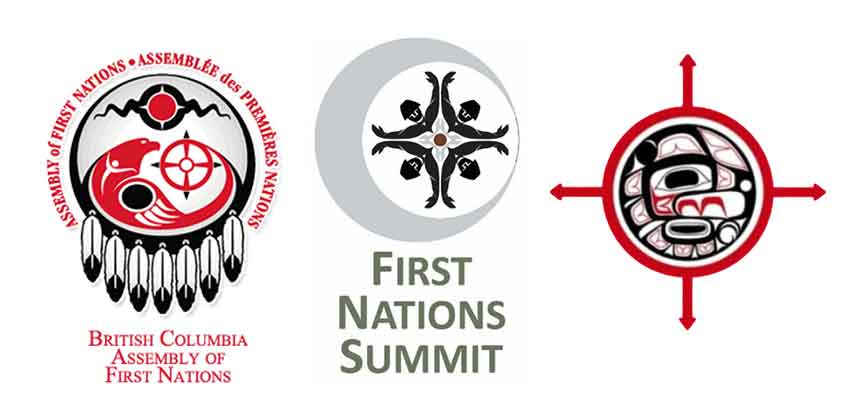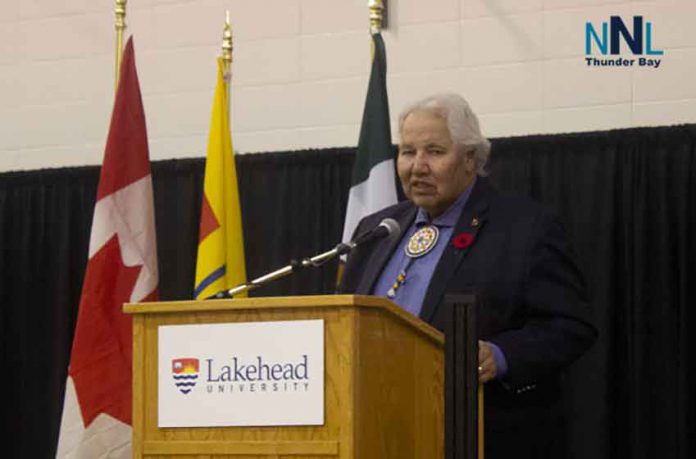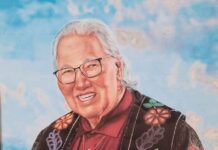Vancouver – What is Bill C-262? It is an Act to ensure that the laws of Canada are in harmony with the United Nations Declaration on the Rights of Indigenous Peoples
Senator Murray Sinclair explains, “Let me begin by reminding you, the bill itself doesn’t raise the implementation of the declaration as its objective. The bill talks about calling upon Canada to do an analysis of existing legislation to see which laws are currently inconsistent with the declaration. That’s primarily what this bill is about.
Even in our call to action in the TRC report, the TRC report recommended the parties implement the UN declaration as a framework for reconciliation, not for purposes at that point of simply implementing it to change the laws automatically.
I suspect it will be unlikely that the Government of Canada will ever simply pass a law declaring the UN declaration as the law of Canada. That is mainly because it impinges not only on federal law but also on the laws of the provinces. And the laws of the provinces are going to have to be considered by each provincial entity
I think there we would hopefully benefit from the expertise of international legal experts who would point out those differences. This is the kind of bill which primarily says: Let’s look at our laws and see what we have that’s in conflict with the existing declaration.
Bill C-262 urges us to ensure that our domestic laws are in line with the United Nations Declaration on the Rights of Indigenous Peoples. It was adopted in 2007 by 143 UN member states. Canada was one of only four countries against, but finally adopted it in 2016 after endorsing it, but not signing, in 2010
As a representative of our great country for much of my adult life, as a senator and as a Canadian, our positive reputation is something of which I am immensely proud and which I do not take lightly. We must not take how we are seen beyond our borders for granted, honourable senators”.
Bill C-262 urges us to ensure that our domestic laws are in line with the United Nations Declaration on the Rights of Indigenous Peoples. It was adopted in 2007 by 143 UN member states. Canada was one of only four countries against but finally adopted it in 2016 after endorsing it, but not signing, in 2010.
This is an open letter sent to the Senators of Canada by First Nations Leadership Council.

Senators of Canada
The Senate of Canada
Ottawa, Ontario
K1A 0A4
OPEN LETTER RE: Support for the Immediate Passing of Bill C-262
Dear Senators,
The First Nations Leadership Council (FNLC) is calling on each Senator of Canada to support the passage of Bill C-262, An Act to ensure that the laws of Canada are in harmony with the United Nations Declaration on the Rights of Indigenous Peoples, without delay.
The Truth and Reconciliation Commission of Canada, in Call to Action #43, called upon the “federal, provincial, territorial, and municipal governments to fully adopt and implement the United Nations Declaration on the Rights of Indigenous Peoples as the framework for reconciliation.”
Bill C-262 was passed in the House of Commons on May 30, 2018, with the overwhelming majority of votes cast in support of the bill.
Bill C-262 must not be stalled in the Senate. With a looming federal election, there is a substantial and unacceptable risk that the bill may miss the legislative window.
The United Nations Declaration on the Rights of Indigenous Peoples was adopted by the General Assembly in September 2007 after more than 20 years of discussions. Canada has delayed the implementation and recognition of the international human rights standards of Indigenous peoples for far too long.
UN Treaty bodies, the independent expert groups responsible for promoting state compliance with binding international conventions like the Convention on the Elimination of Racial Discrimination, have repeatedly called on Canada to fulfil its human rights obligations by implementing the Declaration.
The FNLC is calling on the Senate of Canada to immediately pass Bill C-262 and to begin the initial work of implementing the UN Declaration, the most comprehensive, universal international human rights instrument explicitly addressing the economic, social, cultural, political, spiritual and environmental rights of Indigenous Peoples.
Sincerely,
FIRST NATIONS LEADERSHIP COUNCIL
On behalf of the FIRST NATIONS SUMMIT
Grand Chief Edward John
Robert Phillips
Cheryl Casimer
On behalf of the UNION OF BC INDIAN CHIEFS
Grand Chief Stewart Phillip
Kukpi7 Judy Wilson
On behalf of the BC ASSEMBLY OF FIRST NATIONS:
Regional Chief Terry Teegee







